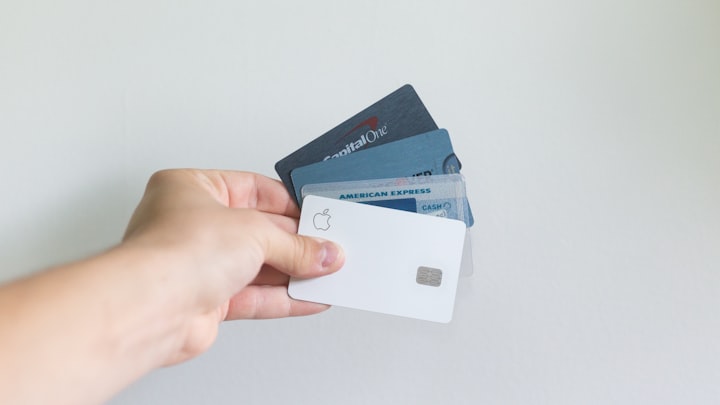Debt: You might not want it but you sure do need it.
The forgot benefits of being in debt

From a young age, we are told to avoid debt at all costs. Credit cards are taught to be the equivalent to the devils currency. Most of my friends avoided getting a credit card for years because they were under the impression that it was synonyms with debit. I am about to turn twenty-two, and the biggest lesson I have learned in my short stay in the ‘adult world’ is that debt, if done correctly, is a very good thing.
When I was in high school, I refused to consider the possibility of college because I was afraid to start my life off a hundred thousand dollars in debt. What no one seems to tell you, is that debt is crucial to life in the United States. The majority of high paying jobs in the country, require a college degree which is unattainable unless you put up a small fortune. They might take a decade to pay off, but it gives you the tools necessary to obtain a job with a high enough salary to do it.
A month after turning 18, I went $10,000 into debt by signing my first car lease. (At the time, I didn’t even know that signing a lease meant taking on debit, but I soon learned.) I needed a car to get to work and by taking on this debt, I was able to acquire an income large enough to pay it off and then some.
People tend to over complicate what debit is. Debt, is an amount owed to another person or business. In most cases, there is nothing wrong with owing money, as long as you have the means to pay it off. Think about what it takes to buy a house. I live in Massachusetts, and for those of you who don't know, a 1200 sq ft house costs on average $350,000. Let me break down just how expensive that really is. The average median income per person in MA is $46,000 a year. For one person to afford a house of that price, they would have to work for 8 years, without spending a single penny, to afford it in cash. As you can imagine, that is simply impractical, which is why most people do not buy a house in full. Instead, you apply for a loan, and a bank will approve you based on your ability to pay it back over 30 years. Most people, when buying a house, plummet themselves into having close to half a million dollars worth of debt over night, and it is normal. Not only is it normal but, it is necessary.
There are a lot of benefits to being in debt, like having a car or house. Have you ever heard the saying, ‘you need to spend money to make money’? Well, have you thought about spending someone else's money (E.I. the bank’s money), to make a profit of your own. Say you had $20,000 and wanted to use that money to buy a car. You could do that, or you could take out a loan and use the $20,000 it as a down payment for a house, rent out the house to turn a profit, and use that additional income to pay off a car loan. You still get the car you wanted, but now you also have real estate that can provide you with an additional line of income. Of course this isn’t a foolproof method, but it is a very common occurrence in New England. Being a landlord can be just as profitable as being a doctor or lawyer if done correctly, and with a bit of luck.
Debt, like everything, can be beneficial if used in moderation. It is important to recognize the difference between having all of your credit cards maxed out because of a shopping addiction, and taking out a loan to buy real estate.
Hey guys, thanks for reading! If you enjoyed this story, maybe let me know by sending a like. Tips are appreciated as well!






Comments
There are no comments for this story
Be the first to respond and start the conversation.